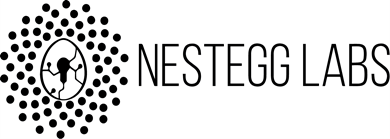Automated Cell Culture System for cutting-edge research
The consortium of Nestegg Labs, regenerative institute MERLN and the research engineering department IDEE of Maastricht University aim to bring the Obruza cell culture enabling technology a major step forward. The system will offer scalable, accelerated and flexible automation of cell culture for regenerative medicine and screening of novel compounds and biomarkers. Tremendous effort in research has elucidated a new era of cell therapies called “living” drugs.
Currently, thousands of active clinical trials are running to confirm the curative capacities of these “living” drugs. Despite initiatives undertaken, only limited success has been achieved in upscaling cell therapies and tissue engineering for wide clinical application. The expected societal and economic contribution of this project is that by replacing the labor intensive manual cell culture techniques with an automated system, these limitations can be overcome, such as variation in culture quality and microbial contamination. The compact and modular Obruza automated cell culture system is unique, because it offers automated liquid managed with continued monitoring by microscopy.
The project was executed in two work packages. In the first, a disposable Unaflux adapter hosting a 6 well plate was designed using 3D print technology. It offers a robust connection to all fluid handling components, and transparency for imaging. Additionally, the Obruza cell culture system at TRL6 was prototyped including fluid handling, microscopy with several filters, temperature and gas mixing elements and several transport stages to position all components relative to the well plate. All were arranged in an optimal and modular configuration to expand for additional well and larger plate processing. In the second, a parser was developed in which automated cell culture protocols are stored for automated cell culturing. Also, a user interface is developed for interactive tuning by a user and to indicate the status of the cell culture process. The prototype was validated for cell survival after 4 days as main outcome and microscopic imaging was successfully performed.
The results serve to facilitate business activities by Nestegg Labs such as temporary placement at potential launching customers and receive feedback to develop a minimal viable product.


